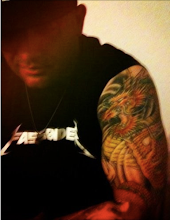The other day I watched a Youtube video of a cute girl who apparently met a man in a cafe, had some great conversation and grabbed the coat that he left behind. Why did she make a Youtube video? An attempt to find him and return the jacket. Ahh romance!
Here's the part that's causing some controversy - its a fake video created by a media agency in Sydney for a fashion retailer called Witchery.
As the effects of the global recession begin to hit Australia, I think more and more agencies will be asked to explore these digital stunts and inevitably more and more agencies will make the same mistake this agency has - believing that a stranger (unknown brand) can behave like a friend (preferred brand).
The problem I have with this video is that a STRANGER has made me the butt of her joke.
Close your eyes and imagine a stranger making fun of you at a party, okay now open them and say the first thing that comes to mind...mine was "ASS (pause for emphasis) HOLE."
Droga5's successful Airforce1 viral for Marc Ecko did it differently. They "tricked us" the way a magician would, the treat was well worth the trick. The trick was so entertaining that the impact was only slightly diluted when we discovered the truth. And if you are a real Marc Ecko loyalist you were rewarded with an insiders clue, "live free" was tagged on the presidents plane - giving you the social currency of knowing Marc Ecko was involved before the general population.
The differences between relationships with strangers and friends are well documented in social psychology studies. Dan Ariely describes 2 distinctly different worlds in his book "Predictably Irrational": The world of monetary market norms (money=service e.g. a prostitute) and
non-monetary social norms (friendship/love = service e.g. a date who decides to sleep with you because she likes you).
The Witchery video leads us to believe that this woman is from the world of non-monetary social norms (girl you date), but once we discover the author is actually from the world of monetary market norms (prostitute) many feel ANGRY.
Droga5 seems to have first understood the relationship between Marc Ecko and the consumer. They made sure that the behaviour of the brand was consistent with the image in consumers minds. Mixing those 2 up leads to massive problems, just ask the white kid who walks into a room full of black hip hop aficionados and says "what's up my ni...."... That's an exact quote, he never finished the sentence.
A friend can play an entertaining trick. What Witcherys agency did not seem to understand, is that a stranger playing a similar trick...is nothing more than a liar.
